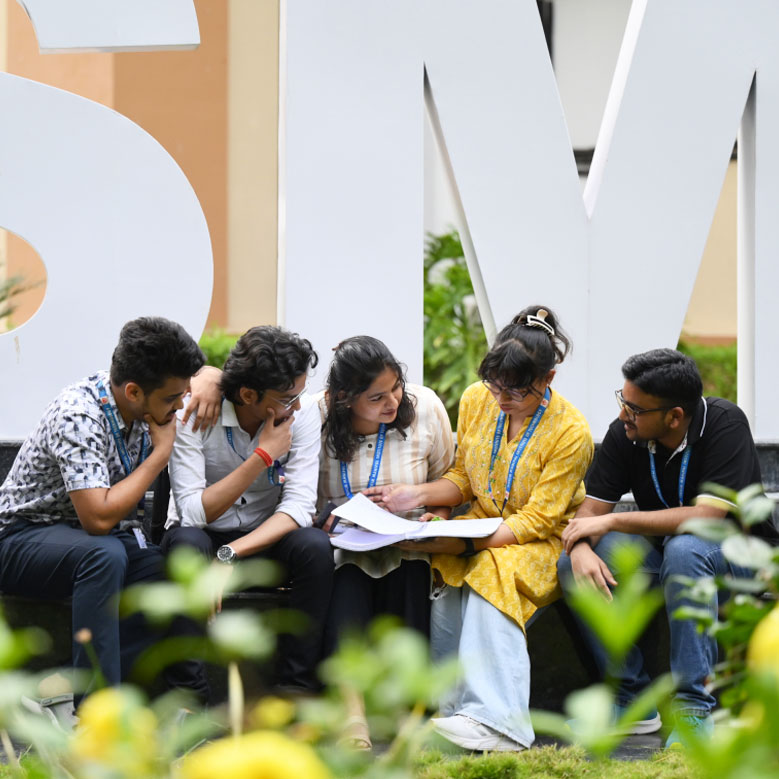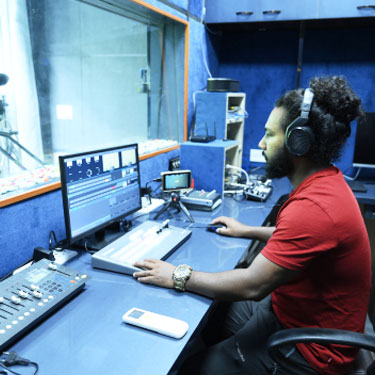DATES TO REMEMBER :
12th Apr 2025 : Last Date to Apply for Indian Admissions
01st Aug 2025 : Course commencement date
Overview
Electrical and Electronics Engineering Department at SMIT offers Bachelor of Technology in Electrical and Electronics Engineering, a unique mix of electrical, electronics and computer related courses enabling the students to take up professional career / higher studies in any of these areas. The curriculum based on a credit scheme is updated periodically to reflect changes in the electrical & electronics profession in consultation with experts from industries and renowned academic institutions well aware of the recent trends in Electrical and Electronics Engineering syllabus.
Some of the unique features about Electrical and Electronics Engineering here are that innovative practices like practice school, mini and major projects associated with lab and theory courses, continuous evaluation, relative grading, etc are included as part of the curriculum of Electrical and Electronic Engineering degree.

Crafting success
stories with excellence
in education.
ELIGIBILITY
- Passed 10+2/equivalent with 45% marks (40% in Reserved Category) in Physics & Maths
(Mandatory) and any one from the following:
Computer Science / Electronics / Information Technology / Biology / Chemistry / Informatics Practices / Biotechnology / Technical Vocational subject / Engineering Graphics / Business Studies / Entrepreneurship. - Passed Diploma in any branch in Engineering and Technology with at least 45% marks (40% in Reserved Category) OR BSc with at least 45% marks (40% in Reserved Category) and passed 10+2 exam with Mathematics as a subject OR passed D.Voc stream in the same or allied sector.
ENTRANCE EXAMINATION
a) General Category, Defence, North East, Gorkha Territorial Administration (GTA) and Paramilitary Force Categories:
- The candidates will have to appear for the JEE to be conducted by the CBSE.
- Cut-off JEE Main Score in All India JEE applicable to all reserved categories will be displayed on our website www.smu.edu.in.
b) Sikkim Category:
- Candidates should apply to the Director, Technical Education, HRDD and Government of Sikkim. They should appear in the entrance test conducted by the Government, the details of which will be notified by the Director, HRDD, Technical Education.
c) SMIT Online Test:
- Candidates seeking admission under this category will have to appear for online test conducted by SMU.
d) MU-OET Category:
- Manipal University Online Entrance Test (MU-OET) 2017
Program FEES
| Fee | Fees For General (Gen), North East (NE), Defence (Def), ParaMilitary Force (PMF) ,GTA & SAARC | Fees For Sikkim Quota Students | Fees For Non SAARC | Fee Structure ofr NRI / Foreign Category |
| Caution Deposit | 10,000 | 10,000 | 10,000 | 10,000 |
| Exam Fees (One time per year) | 3,500 | 3,500 | 5,000 | 3,500 |
| Lumpsum | 3,12,700 | 1,83,500 | 3,90,900 | $7600 |
| YEARLY | Fees For General Category Students | Fees For Sikkim Quota Students | Fees For Non SAARC | Fee Structure ofr NRI / Foreign Category |
| First Year I Installment | 1,62,850 | 95,500 | 2,03,300 | $3900 |
| First Year II Installment | 1,62,850 | 95,500 | 2,03,300 | $3900 |
| Second Year I Installment | 1,62,850 | 95,500 | 2,03,300 | $3900 |
| Second Year II Installment | 1,62,850 | 95,500 | 2,03,300 | $3900 |
| Third Year I Installment | 1,62,850 | 95,500 | 2,03,300 | $3900 |
| Third Year II Installment | 1,62,850 | 95,500 | 2,03,300 | $3900 |
| Fourth Year I Installment | 1,62,850 | 95,500 | 2,03,300 | $3900 |
| Fourth Year II Installment | 1,62,850 | 95,500 | 2,03,300 | $3900 |
- B.Tech. - Engineering knowledge: Apply the knowledge of mathematics,
science, engineering fundamentals, and an engineering specialization to the
solution of complex engineering problems.
- B.Tech.[L.E.] - Problem analysis: Identify, formulate, review research
literature, and analyze complex engineering problems reaching substantiated
conclusions using first principles of mathematics, natural sciences, and
engineering sciences.
- Design/development of solutions: Design solutions for complex engineering
problems and design system components or processes that meet the specified needs
with appropriate consideration for the public health and safety, and the
cultural, societal, and environmental considerations.
- Conduct investigations of complex problems: Use research-based knowledge and
research methods including design of experiments, analysis and interpretation of
data, and synthesis of the information to provide valid conclusions.
- Modern tool usage: Create, select, and apply appropriate techniques, resources,
and modern engineering and IT tools including prediction and modeling to complex
engineering activities with an understanding of the limitations.
- The engineer and society: Apply reasoning informed by the contextual knowledge
to assess societal, health, safety, legal and cultural issues and the consequent
responsibilities relevant to the professional engineering practice.
- Environment and sustainability: Understand the impact of the professional
engineering solutions in societal and environmental contexts, and demonstrate
the knowledge of, and need for sustainable development.
- Ethics: Apply ethical principles and commit to professional ethics and responsibilities and norms of the engineering practice.
- Individual and team work: Function effectively as an individual, and as a member
or leader in diverse teams, and in multidisciplinary settings.
- Communication: Communicate effectively on complex engineering activities with
the engineering community and with society at large, such as, being able to
comprehend and write effective reports and design documentation, make effective
presentations, and give and receive clear instructions.
- Project management and finance: Demonstrate knowledge and understanding of the engineering and management principles and apply these to one’s own work, as a member and leader in a team, to manage projects and in multidisciplinary environments.
- Life-long learning: Recognize the need for, and have the preparation and ability to engage in independent and life-long learning in the broadest context of technological change.
- To produce students with technical efficiency for tackling the changing demands of industrial, research and academic needs.
- To motivate students to apply for higher education and research.
- To encourage students and provide requisite opportunities to establish and lead
the organization.
- To induce professional ethics among the future graduates for contributing to the develop
- Click Here forfor 1st Year CO
- Click Here for CO
- Click Here for B.Tech First Year EEE Course Outcome.
- Click Here for B.Tech EEE Course Outcome.
- Click Here for B.Tech First Year EEE Syllabus.
- Click Here for B.Tech EEE Syllabus
- Click Here for B.Tech EEE Syllabus (Effective from 1st semester onwards for 2024 admitted batch and 3 rd semester onwards for 2023 admitted batch)
- Electrical and Electronics engineers are highly employable and can find work in many industries, including power, electronics, automotive, IT, telecoms, manufacturing, transport, utilities and construction.
- Many global electrical and electronics organizations maintain research and development facilities within India and abroad.
Entrepreneurship
Development cell (EDC)
Helps students in exploring entrepreneurial opportunities.

Students are encouraged to engage in practical's making them industry ready

World-class campus in a tranquil environment

Best-in-class laboratories and workshops for practical exposure

